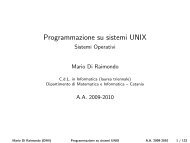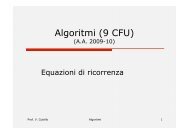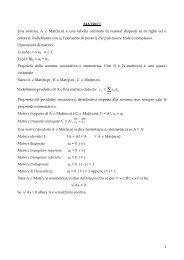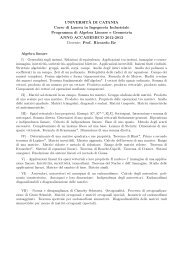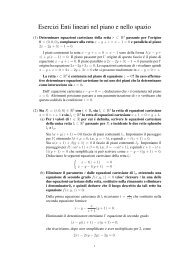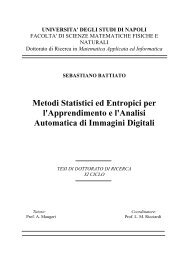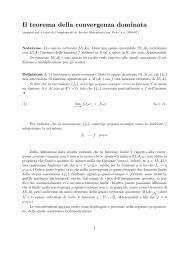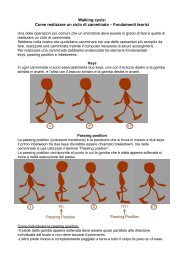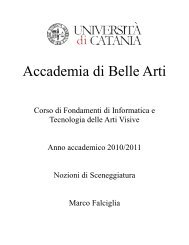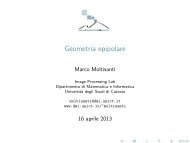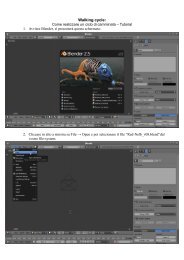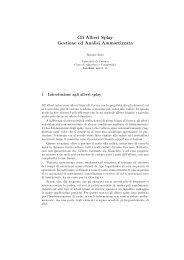Logica Matematica Corso di Laurea in Informatica ... - Mbox.dmi.unict.it
Logica Matematica Corso di Laurea in Informatica ... - Mbox.dmi.unict.it
Logica Matematica Corso di Laurea in Informatica ... - Mbox.dmi.unict.it
You also want an ePaper? Increase the reach of your titles
YUMPU automatically turns print PDFs into web optimized ePapers that Google loves.
3.1. INSIEMI 81<br />
o anche<br />
n<br />
Ai,<br />
i=1<br />
o semplicemente Ai.<br />
L’<strong>in</strong>tersezione generalizzata degli n <strong>in</strong>siemi è l’<strong>in</strong>sieme degli elementi che<br />
appartengono a tutti gli Ai, <strong>in</strong> simboli:<br />
o anche<br />
n<br />
Ai = {x ∈ U | per ogni i, 1 ≤ i ≤ n, x ∈ Ai}<br />
i=1<br />
n<br />
Ai,<br />
i=1<br />
o semplicemente Ai.<br />
Si nota che la def<strong>in</strong>izione dell’operazione generalizzata <strong>di</strong>fferisce da quella<br />
della operazione a due argomenti per l’uso dei quantificatori <strong>in</strong>vece dei connettivi,<br />
rispettivamente ∃ per ∨ e ∀ per ∧. Anche i quantificatori, si possono<br />
<strong>in</strong>terpretare come connettivi generalizzati.<br />
Per le operazioni generalizzate valgono molte delle leggi dell’unione e<br />
<strong>in</strong>tersezione, opportunamente riformulate, ad esempio le proprietà commutativa,<br />
associativa e <strong>di</strong> assorbimento; valgono le leggi <strong>di</strong> De Morgan:<br />
e<br />
n<br />
∼( Ai) =<br />
i=1<br />
n<br />
∼( Ai) =<br />
i=1<br />
n<br />
(∼ Ai)<br />
i=1<br />
n<br />
(∼ Ai).<br />
Valgono le leggi <strong>di</strong>stributive <strong>di</strong> una operazione generalizzata rispetto a una<br />
normale (non con entrambe generalizzate):<br />
e<br />
n<br />
( Ai) ∪ B =<br />
i=1<br />
n<br />
( Ai) ∩ B =<br />
i=1<br />
i=1<br />
n<br />
(Ai ∪ B)<br />
i=1<br />
n<br />
(Ai ∩ B).<br />
i=1


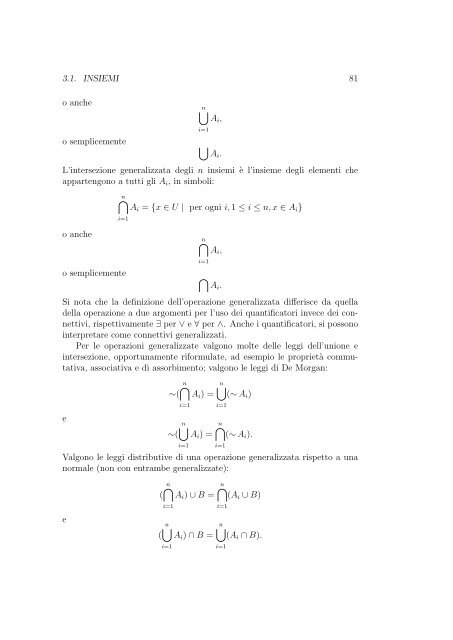

![Introduzione ai sistemi Wiki [PDF] - Mbox.dmi.unict.it](https://img.yumpu.com/16413205/1/184x260/introduzione-ai-sistemi-wiki-pdf-mboxdmiunictit.jpg?quality=85)
